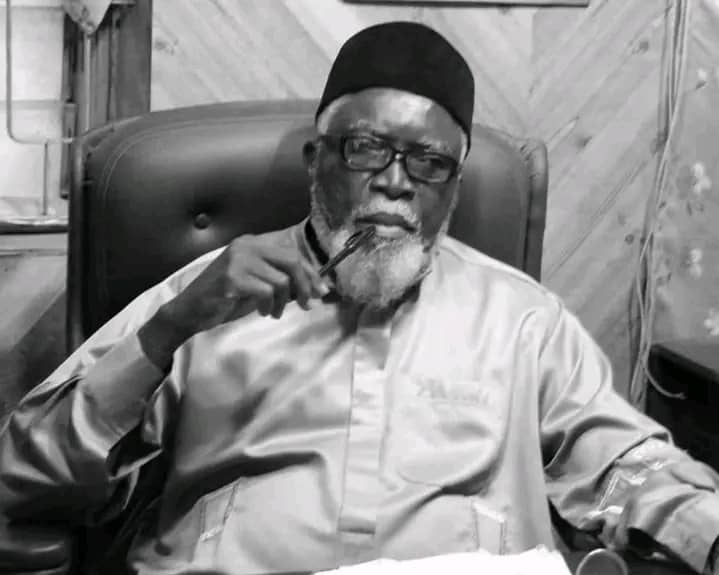Featured
Life And Times Of Popular Late Nigerian Poet, Olanrewaju Adepoju

Known for his oratory power and fiery criticism of government and corrupt individuals, Adepoju was a central figure in the Yoruba oral poetry with many albums to his name.
His Poetry, Oriki Oludumare —a chant of the God’s praise, gave him more fame in the Yoruba speaking parts of the country. He has contributed immensely to the scholarly research on African orature.
After a long stint as a poet, he decided to channel his knowledge to Islam and he was known as a strong religious leader in Oyo state
According to Poetry Translation, ?lá?rewajú Adép??jù (also sometimes called “Lanrewaju Adepoju”) is (was) a Yorùbá poet, writer, intellectual, and religious leader from Nigeria, born in a village called Abà Òkè Pupa in ??y?? State of Nigeria, in 1940. An autodidact, he taught himself to read and write in Yorùbá and English. But his time spent with the griots (West African poets and storytellers) of his childhood gave him a vast knowledge of the Yorùbá verbal arts and culture that informed his mature work.
He worked in a newspaper house as a proofreader, then became a poet, publishing a collection titled Ìrònú Akéwì in 1972, as well as a novelist, publishing Ládépò ?m? Àdánwò in 1975.
The novel was later made into a movie in 2005.
However, it was as a poet that his talent first emerged and it earned him a spot on the air at the Western Nigerian Broadcasting Service.
He was employed to perform poetry at dawn in a segment called Ìjí?jí Akéwì (the poet’s morning-song). He was one of the many poets of his generation who worked at that station.
He later resigned (due to copyright demands by the station on his original work) to become an independent poet and record producer, publishing his spoken Yorùbá poetry directly to the public through record plates (vinyl), cassettes, and later CDs.
He estimates he has released almost a hundred spoken-word ewì albums.
Adép??jù is known primarily for his politically-charged poetry. He was, at different times, a poetic conscience for the Yorùbá-speaking nation, a scourge on politicians, an advocate for the masses, a religious leader whose poems often took on proselytizing characteristics, and eventually a spokesperson for politicians and administrators whose positions he supported.
Adepoju was detained by military administrators for some of his activism. His insistent political positions lost him some of his supporters, but the talent behind his voice and words was never questioned. He is one of the most notable exponents of the ewì spoken-word poetry in Yorùbá, and one of the most influential voices in the genre.
-Kunle Bakare.
-
Society News3 years ago
Jamaican man beheads wife after finding out their 6 kids are not his
-
Society News5 years ago
EXCLUSIVE: The Complete Story of Dolapo Awosika, John Fashanu and Prophet Kasali Sex Mess
-
News2 years ago
Breaking: Ex-Police IG, Tafa Balogun Dies
-
News4 years ago
Pastor Osagie Ize-Iyamu, His Membership Of Secret Cult, And Other Issues Touching On His Public Credentials Examined by Barr. PATRICK I. BIOSE
-
News4 years ago
BREAKING: Ajimobi’s daughter-in-law blast Gov. Makinde, says gov can’t surpass ex-Oyo gov
-
News4 years ago
BREAKING: 2 arrested as NAF begins investigations into Tolulope’s death
-
News4 years ago
BREAKING: Police take over Edo House of Assembly as APC, Oshiomhole move to seize control
-
Crime4 years ago
Exclusive: Female Aide Fingered In Oko Oloyun’s Murder + Banking Transactions That Nailed Husband
Notice: Undefined variable: user_ID in /var/www/first2023/wp-content/themes/firstweekly/comments.php on line 48
You must be logged in to post a comment Login